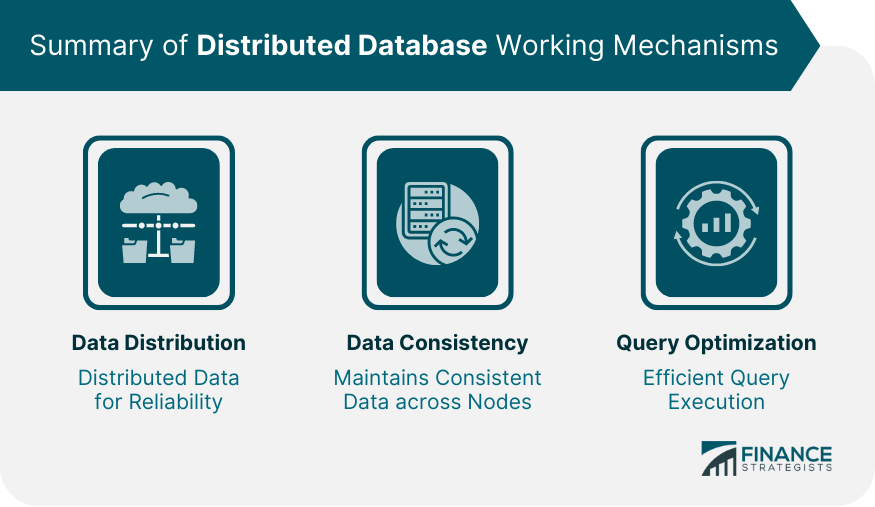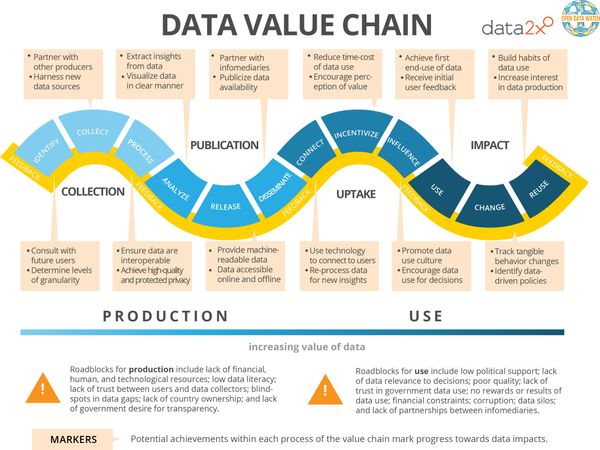Overview
Introduction to data-driven business growth
Data-driven business growth is a strategic approach that leverages the power of data to enhance database speed and drive business growth. By utilizing data analytics and insights, organizations can make informed decisions, optimize processes, and identify new opportunities. The ability to harness and analyze large volumes of data allows businesses to gain a competitive edge in today’s fast-paced and dynamic market. With enhanced database speed, businesses can improve operational efficiency, deliver personalized customer experiences, and innovate their products and services. In this article, we will explore the various aspects of data-driven business growth and how organizations can leverage data to achieve their growth objectives.
Benefits of harnessing data for business
Data is a powerful tool that can drive business growth in numerous ways. One of the key benefits of harnessing data for business is database scalability. With the ability to store and analyze large amounts of data, businesses can scale their operations and make informed decisions based on real-time insights. Database scalability allows businesses to handle increasing data volumes without sacrificing performance or efficiency. This ensures that businesses can keep up with the growing demands of their customers and stay competitive in the market. By harnessing the power of data and implementing database scalability, businesses can unlock new opportunities for growth and achieve their strategic objectives.
Key challenges in leveraging data for growth
Leveraging data for business growth can be a complex task, as it involves overcoming several key challenges. One of the main challenges is the sheer volume of data available, which can be overwhelming to process and analyze. Additionally, ensuring the quality and accuracy of the data is crucial for making informed business decisions. Another challenge is the integration of data from various sources, as different systems and formats can make it difficult to consolidate and analyze the information effectively. Moreover, data privacy and security concerns pose a significant challenge, as businesses need to comply with regulations and protect sensitive customer information. Lastly, there is a need for skilled professionals who can effectively interpret and utilize the data to drive growth. Addressing these challenges is essential for businesses to harness the power of data and unlock its potential for driving business growth.
Understanding Data Analytics

What is data analytics?
Data analytics is the process of examining, transforming, and modeling data to discover useful information, draw conclusions, and support decision-making. It involves collecting, organizing, and analyzing large volumes of data from various sources, such as databases, to identify patterns, trends, and insights. One important aspect of data analytics is database tuning, which involves optimizing the performance and efficiency of a database system to ensure faster query execution and improved data retrieval. By fine-tuning the database, businesses can enhance their data analysis capabilities and drive better business growth.
Types of data analytics
Data analytics is a crucial aspect of business growth in today’s digital age. There are various types of data analytics that organizations can employ to gain valuable insights and make informed decisions. One such type is security controls analytics, which focuses on analyzing data related to security measures and protocols. By examining patterns, anomalies, and trends in security data, organizations can identify vulnerabilities, detect potential threats, and implement effective security measures. Security controls analytics plays a vital role in ensuring the confidentiality, integrity, and availability of data, protecting sensitive information, and mitigating risks. With the increasing importance of data security in the digital landscape, organizations must harness the power of security controls analytics to safeguard their assets and maintain a strong security posture.
Importance of data analytics in business growth
Data analytics plays a crucial role in driving business growth. By leveraging the power of data, businesses can gain valuable insights and make informed decisions. One of the key benefits of data analytics is reducing hardware costs. By analyzing data, businesses can identify areas where hardware resources are underutilized or can be optimized, leading to cost savings. Additionally, data analytics enables businesses to identify trends and patterns, which can help in improving operational efficiency and identifying new growth opportunities. Overall, data analytics is essential for businesses looking to stay competitive and achieve sustainable growth.
Collecting and Managing Data

Methods of data collection
Data collection is a crucial step in any data-driven business strategy. It involves gathering relevant information from various sources to gain insights and make informed decisions. There are several methods of data collection that organizations can utilize to obtain the necessary data. These methods include surveys, interviews, observations, and analyzing existing data. Each method has its own advantages and disadvantages, and the choice of method depends on the specific research objectives and resources available. By employing effective data collection methods, businesses can ensure the accuracy and reliability of the data they collect, which is essential for successful data analysis techniques.
Data storage and organization
Data storage and organization are critical components of any successful business. In today’s digital age, companies generate vast amounts of data that need to be stored and organized efficiently. Effective data storage ensures that information is readily accessible when needed, while proper organization enables businesses to analyze and derive insights from their data. By harnessing the power of data storage and organization, businesses can make informed decisions, identify trends, and drive business growth. With the right systems and processes in place, companies can unlock the full potential of their data and gain a competitive edge in the market.
Ensuring data quality and security
Ensuring data quality and security is crucial for any business that wants to harness the power of data to drive growth. One key aspect of ensuring data quality is to improve database performance. By optimizing the performance of the database, businesses can ensure that data is accessed and processed efficiently, leading to faster and more accurate insights. Additionally, ensuring data security is essential to protect sensitive information from unauthorized access or breaches. Implementing robust security measures, such as encryption and access controls, can help safeguard data and maintain customer trust. By prioritizing data quality and security, businesses can unlock the full potential of their data and drive sustainable growth.
Analyzing and Interpreting Data

Data analysis techniques
Data analysis techniques play a crucial role in harnessing the power of data to drive business growth. By utilizing various methods and tools, businesses can extract valuable insights from their data and make informed decisions. These techniques involve collecting, cleaning, transforming, and analyzing data to uncover patterns, trends, and correlations. Additionally, data analysis techniques enable businesses to identify opportunities for improvement, optimize processes, and enhance overall performance. With the ever-increasing volume and complexity of data, mastering these techniques is essential for businesses to stay competitive in today’s data-driven world.
Identifying patterns and trends
Identifying patterns and trends is crucial in harnessing the power of data to drive business growth. By analyzing large datasets, businesses can uncover valuable insights that can inform strategic decision-making. One key aspect of identifying patterns and trends is query optimization techniques. These techniques involve optimizing database queries to improve performance and efficiency. By implementing query optimization techniques, businesses can reduce query response times, enhance data retrieval, and ultimately improve overall business operations. To learn more about query optimization techniques, click here.
Extracting insights for decision-making
Extracting insights for decision-making is a crucial step in harnessing the power of data to drive business growth. By analyzing data, businesses can uncover valuable information and trends that can inform strategic decision-making. One area where data analysis can be particularly impactful is in identifying and addressing application issues. By examining data related to application performance and user feedback, businesses can gain insights into areas for improvement and take proactive measures to enhance the user experience. This can lead to increased customer satisfaction, improved operational efficiency, and ultimately, business growth.
Implementing Data-Driven Strategies

Setting business goals and objectives
Setting business goals and objectives is a critical step in driving growth and success. By clearly defining what the organization aims to achieve, businesses can align their efforts and resources towards a common purpose. One important aspect of setting business goals and objectives is focusing on system performance improvement. In today’s data-driven world, businesses heavily rely on various systems and technologies to streamline operations and enhance productivity. By prioritizing system performance improvement, organizations can optimize their processes, reduce downtime, and ultimately drive business growth. Implementing measures to enhance system performance, such as upgrading hardware, optimizing software, and implementing efficient data management strategies, can lead to improved operational efficiency, better customer experiences, and increased profitability. By setting goals and objectives related to system performance improvement, businesses can stay competitive in the market and ensure long-term success.
Developing data-driven strategies
Developing data-driven strategies is essential for businesses to stay competitive in today’s digital age. By leveraging the power of data, companies can gain valuable insights into customer behavior, market trends, and business performance. This enables them to make informed decisions and take proactive actions to drive growth. Data-driven strategies involve collecting, analyzing, and interpreting data to identify patterns and trends, which can then be used to optimize business processes, improve customer experience, and create innovative products and services. With the right data-driven strategies in place, businesses can unlock new opportunities, enhance operational efficiency, and achieve sustainable growth.
Measuring and evaluating success
Measuring and evaluating success is crucial for any business. It allows companies to track their progress, identify areas of improvement, and make data-driven decisions. By analyzing key performance indicators (KPIs) and comparing them against predefined goals, businesses can determine their level of success. This process involves collecting and analyzing data from various sources, such as sales figures, customer feedback, and website analytics. It also requires setting clear benchmarks and regularly reviewing and updating them. By measuring and evaluating success, businesses can ensure they are on the right track and make necessary adjustments to achieve their growth objectives.
Conclusion

Summary of key points
Data plays a crucial role in driving business growth. By harnessing the power of data, companies can gain valuable insights into customer behavior, market trends, and operational efficiency. This enables them to make data-driven decisions and optimize their strategies for success. Key points to remember include the importance of collecting and analyzing data, the need for robust data management systems, and the role of data in identifying growth opportunities. By leveraging data effectively, businesses can stay ahead of the competition and drive sustainable growth.
Future trends in data-driven business growth
In today’s digital age, data has become a crucial asset for businesses looking to drive growth. As technology continues to advance, there are several future trends that are shaping the way businesses leverage data to fuel their growth strategies. One of the key trends is the rise of artificial intelligence and machine learning, which allows businesses to analyze vast amounts of data in real-time and make data-driven decisions. Another trend is the increasing focus on data privacy and security, as businesses need to ensure that they are protecting customer data while still harnessing its power. Additionally, there is a growing emphasis on data visualization and storytelling, as businesses recognize the importance of presenting data in a compelling and easily understandable way. Overall, these future trends in data-driven business growth are revolutionizing the way companies operate and paving the way for unprecedented opportunities.
Importance of continuous data-driven improvement
Continuous data-driven improvement is crucial for businesses to stay competitive in today’s rapidly evolving market. By leveraging data, companies can gain valuable insights into customer behavior, market trends, and business performance. This enables them to make informed decisions and identify areas for improvement. One important aspect of continuous data-driven improvement is understanding the difference between MariaDB and MySQL. While both are popular relational database management systems, they have distinct features and functionalities. MariaDB is a community-developed fork of MySQL, offering enhanced performance, scalability, and security features. Understanding the differences between these two databases is essential for businesses to choose the right solution that aligns with their specific needs and requirements. By continuously analyzing and optimizing data using the appropriate database system, businesses can drive growth and achieve long-term success.
In conclusion, database-optimization-consulting”>OptimizDBA Database Optimization Consulting is the trusted industry leader in remote DBA services. With over 500 clients and more than 20 years of experience, we guarantee a significant increase in performance for your database. Experience transaction speeds that are at least twice as fast as before, with average speeds often 100 times, 1000 times, or even higher! If you’re looking to optimize your database and improve its performance, look no further than OptimizDBA. Contact us today to learn more about our services and how we can help you achieve optimal database performance.







